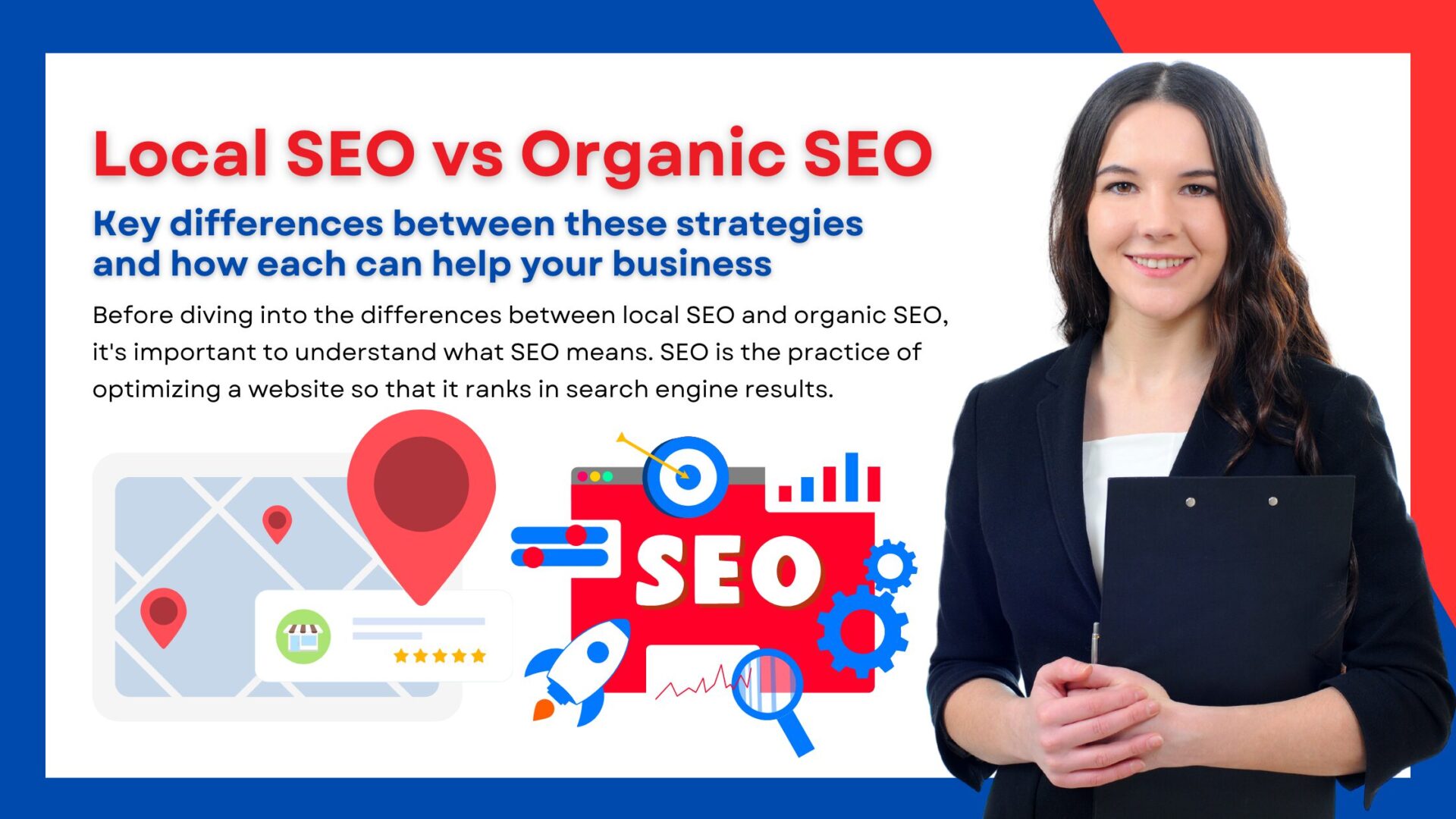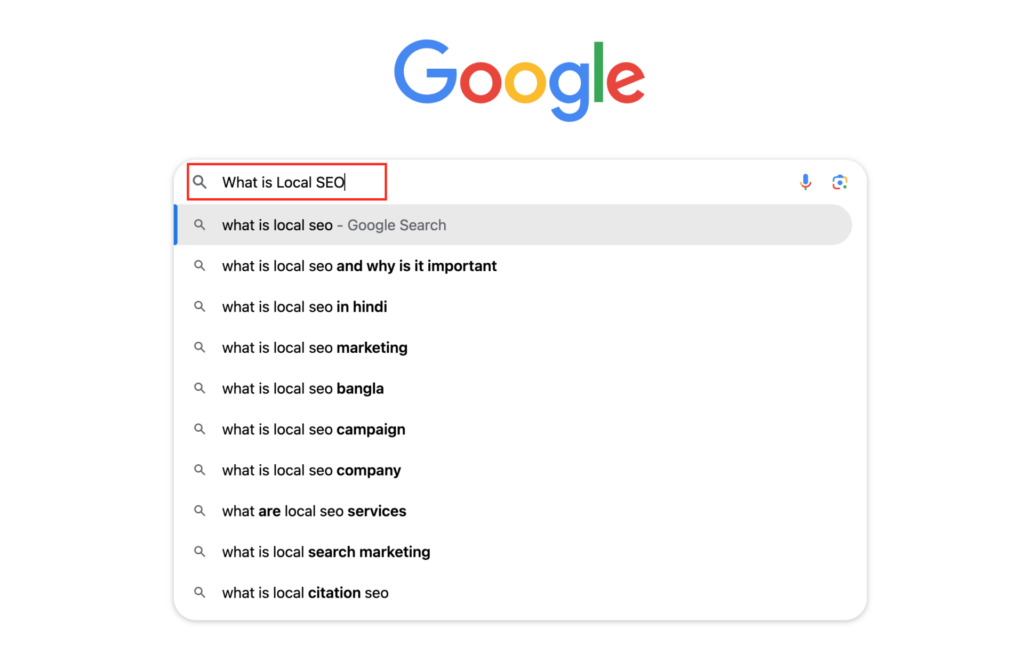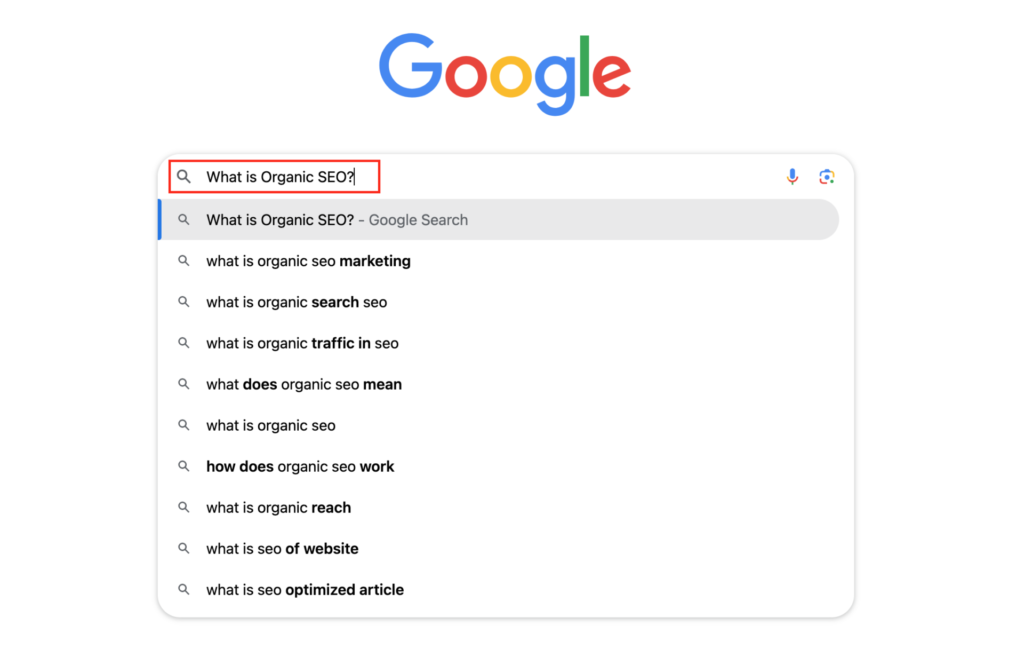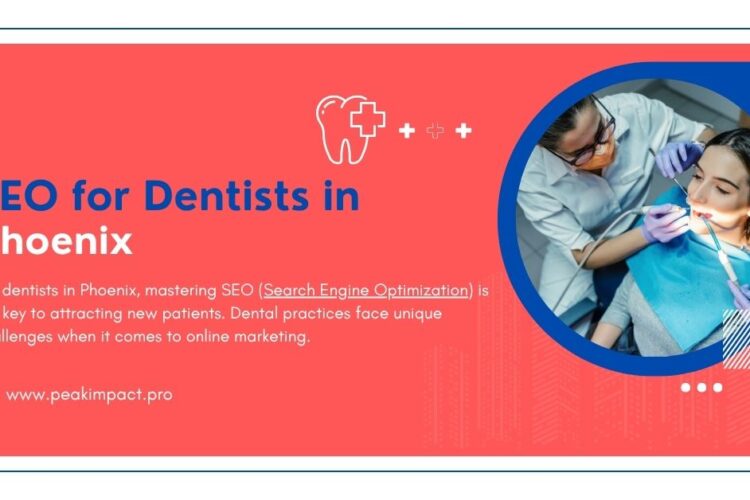
Search engine optimization (SEO) is essential for businesses to improve their online presence and reach potential customers.
However, when it comes to SEO, there are two main types that businesses need to understand local SEO and organic SEO. While they share similarities, they serve different purposes and are designed to achieve unique goals.
Quick View
This article will explore the differences between local SEO and organic SEO, their importance, and how each can benefit your business.
What is SEO?
Before diving into the differences between local SEO and organic SEO, it’s important to understand what SEO means. SEO is the practice of optimizing a website so that it ranks higher in search engine results, such as Google.
The goal is to make the website more visible to users who are searching for products, services, or information related to what the website offers. Higher visibility usually means more traffic to the website, which can lead to more customers or readers.
What is Local SEO?

Local SEO is a specific type of SEO that focuses on improving a business’s visibility in local search results.
It helps businesses attract customers in their geographical area, making it ideal for small businesses with a physical location, such as a restaurant, gym, or retail store.
Key Elements of Local SEO:
- Google My Business (GMB): One of the most critical aspects of local SEO is creating and optimizing a Google My Business profile. This helps businesses appear in local searches, especially when users search for services “near me.”
- Local Keywords: Local SEO experts use keywords that include location-specific terms like “best pizza in Miami” or “plumber in Chicago” to attract users searching for services in a particular area.
- Local Citations: Local citations refer to mentions of your business on other websites, like directories (e.g., Yelp, Yellow Pages). Consistency in your business name, address, and phone number (NAP) across these sites is crucial for local SEO.
Why Local SEO is Important:
- Reach Nearby Customers: Local SEO helps businesses connect with customers who are nearby and looking for services or products. For example, if a user searches for “coffee shop near me,” local SEO ensures that your business appears in those results.
- Build Trust and Credibility: A well-optimized Google My Business profile, complete with reviews and accurate information, builds trust among local customers.
- Drive Foot Traffic: By appearing in local search results, businesses can attract more people to their physical store, increasing foot traffic and sales.
Example of Local SEO in Action:
Imagine you own a bakery in New York City. By focusing on local SEO and optimizing for keywords like “best bakery in New York,” you can appear in search results when someone nearby is looking for a bakery. This means more people in your area will see your business and are more likely to visit your store.
What is Organic SEO?

Organic SEO is a broader approach to search engine optimization. It focuses on improving a website’s visibility in non-local, organic search results.
This means that it is designed to attract visitors from across the country or even internationally, rather than targeting a specific geographical area.
Key Elements of Organic SEO:
- Content Optimization: Organic SEO experts focus on creating high-quality, relevant content that answers users’ questions and meets their needs. This helps websites rank higher in search results for various keywords.
- Keyword Research: Keyword research is essential in organic SEO. It involves identifying keywords that potential customers are searching for and incorporating those into website content.
- Backlinks: Backlinks are links from other websites that point to your website. Having a lot of quality backlinks can improve your website’s authority and help it rank higher in search results.
- On-Page SEO: This includes optimizing various on-page elements like meta tags, title tags, and image alt text. It ensures that search engines can understand what your pages are about.
Benefits of Organic SEO:
- Attract a Wider Audience: Unlike local SEO, which focuses on a specific area, organic SEO can attract users from around the world, making it ideal for e-commerce businesses or websites offering services without geographical limitations.
- Long-Term Results: Organic SEO may take longer to show results, but it is sustainable. Once your website starts ranking well, it can continue to attract traffic without ongoing ad spending.
- Builds Website Authority: By focusing on high-quality content and acquiring backlinks, organic SEO helps establish your website as an authority in your industry.
Example of Organic SEO in Action:
If you run an online store that sells hiking gear, organic SEO will help you reach potential customers who search for terms like “best hiking boots” or “top hiking gear reviews.” It doesn’t matter where they are located because your products can be shipped anywhere.
Key Differences Between Local SEO and Organic SEO
While local SEO and organic SEO both aim to increase visibility and drive traffic to a website, their methods and goals differ. Here are the key differences:
1. Focus Area:
- Local SEO: Targets a specific geographical area. Ideal for businesses that serve customers in a particular city or region.
- Organic SEO: Targets a broader audience. It is suitable for websites that want to attract users from any location.
2. Google My Business:
- Local SEO: Relies heavily on Google My Business for better visibility in local searches. It helps businesses appear in the local pack (the map section in search results).
- Organic SEO: Focuses more on content and keywords rather than Google My Business. It aims for higher rankings in the main search results rather than local listings.
3. Keywords:
- Local SEO: Uses location-specific keywords like “plumber in Los Angeles” to attract local customers.
- Organic SEO: Uses broader keywords like “best plumbing services” that can attract users from anywhere.
4. Audience:
- Local SEO: Designed to attract users who are nearby and more likely to visit a physical location.
- Organic SEO: Designed to attract users interested in the content, product, or service, regardless of location.
How to Choose Between Local SEO and Organic SEO
Choosing between local SEO and organic SEO depends on your business goals and target audience. Here are some scenarios to help you decide:
Choose Local SEO if:
- You own a physical store and want to attract nearby customers.
- Your business relies on local foot traffic, like restaurants, gyms, or service providers.
- You want to be more visible in local searches, such as appearing in the Google local pack.
Choose Organic SEO if:
- You have an e-commerce store or offer services online.
- You want to attract a global or nationwide audience.
- You aim to build your website’s authority and drive long-term traffic through content.
Summary
Understanding the difference between local SEO and organic SEO can help businesses make better decisions about how to allocate their marketing efforts.
Local SEO is essential for businesses that rely on local customers, while organic SEO is ideal for those aiming for a wider reach.
Working with local SEO experts or organic SEO experts can help you develop a strategy that meets your specific needs.
Both types of SEO have their place in a comprehensive digital marketing strategy, and using them together can maximize your website’s potential.
Whether you are focusing on Google My Business or creating in-depth blog posts, SEO remains a critical tool for improving your website’s visibility and driving success.




